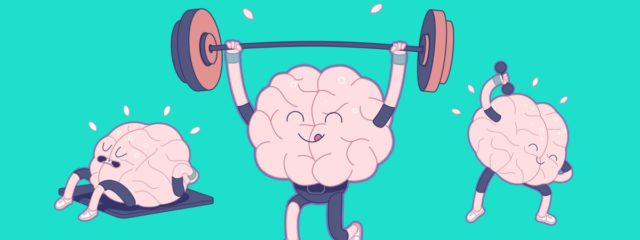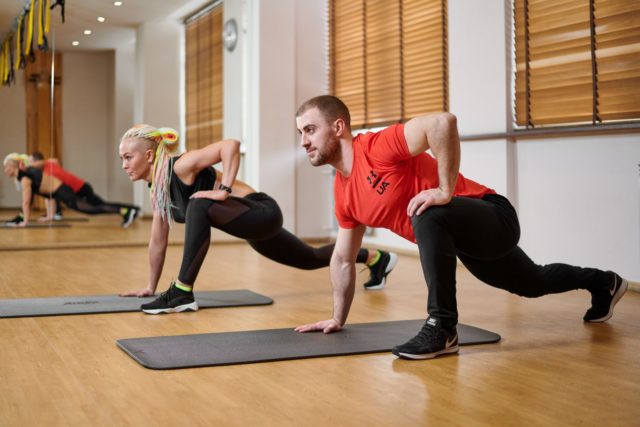Everything you wanted to know about deadlift but were embarrassed to ask
Author: Ola Thomas | Category: Fitness

To begin with, this is one of the most common exercises in any power sport – one way or another, the standing one is present in powerlifting, CrossFit, and bodybuilding, among exercises for endurance and overall strength for wrestling, boxing, martial arts supporters.
The essence of the deadlift is the lifting of weight from the floor due to the muscles of the back and legs. This is a basic multi-joint exercise for the largest muscle groups in our body. Therefore, it allows you to work with maximum weights. What can replace deadlift? Yes, in general, nothing. Therefore, almost all are advised to include this exercise in their program. In the absence of contraindications, of course.
Implementation Tips:
- Stretch well and warm-up;
- Follow the technique;
- Choose an adequate weight and shell;
- Perform the exercise powerfully and synchronously, mentally turn on each muscle.
The deadlift has three main varieties: classic, Romanian and sumo. They can be varied with the help of different shells (barbell, kettlebell, dumbbell, Smith trainer, etc.)
Classic deadlift:
– the legs are slightly narrower than the shoulders, the feet are parallel, grasp the bar slightly wider than the shoulders;
– The bar should be pulled to the legs as much as possible (therefore, it is better to use leg warmers);
– take your shoulder blades and shoulders back, bend your back;
– start lifting from the feet: the bar must be “torn” by the strength of the buttocks and quadriceps;
– when a third of the amplitude is passed, connect the back, with a controlled movement, fully straighten the back and fix it in the final position;
– lower the bar down in the reverse order.
In the classic version, the main load falls on the extensors of the back and trapezium. Therefore, it is appropriate on the “back day”.
The most common mistake is the “hunch draft”, that is, rounding the back. In the best case, you will have a lower backache, in the worst case you will get an injury with consequences for life. So, if your execution technique is lame, remove a couple of pancakes from the neck for a start. Even if you have to reduce the weight by half – do it and put the normal technique.
Romanian deadlift
– feet shoulder-width apart, arms slightly wider, remove the bar from the racks;
– take the shoulder blades back, fix the back and legs;
– in a slow controlled movement, lean forward by moving the buttocks back (knees can be bent 10-15 degrees);
– lower the bar this way to about the middle of the legs, then return to the starting position;
– keep back deflection, control shoulders.
Having tried this type of traction, you will understand that it is better to do it with a small weight – you simply do not hold it with your back. In addition, Romanian traction with large weights becomes dangerous not only for the back but also for the hamstrings.
This type of traction works well on the buttocks and legs. So it’s better not to combine it with the classic deadlift, but it can be added to the “day of the legs” for the biceps of the thigh and buttocks. By the way, this exercise is well suited as a final for stretching the back of the legs.
Sumo Deadlift:
– put your legs wide, and with your hands take the bar slightly narrower than shoulder-width, the wider the legs are apart – the smaller the range of motion, in addition, if you spread your legs too wide, without a good stretch, you can damage the muscles of the legs;
– move the barbell to your legs;
– from this position begin to move your legs, back extensors connect at the end;
– straighten your legs and back, fix the position, then lower the shell in the reverse sequence.
This type of traction is also focused on the legs and buttocks, so movement in the lower back will be minimal. Moreover, the inclination of the back in the lower position and the deviation back in the upper can cause injury.
The exercise “squatting plie” is popular among girls, which, in fact, is a kind of deadlift sumo, but using a kettlebell or dumbbell.
Equipment
As I said at the beginning, the bar often slipped out of my hands, even on ridiculous scales. If you have the same situation, I advise you to use hand straps – you put a loop on your hand and wrap a strap around the neck. Most likely, you will need belts when the weight of the projectile will be more noticeable.
A very important element of equipment is the athletic belt. Its main function is to protect against umbilical hernia or lower back injuries, especially if your abs are not very developed. By supporting your core muscles, you can lift a little more weight.
And, of course, you need comfortable sportswear and shoes. In this exercise, stability and freedom of movement are very important.
06 Dec 2019















